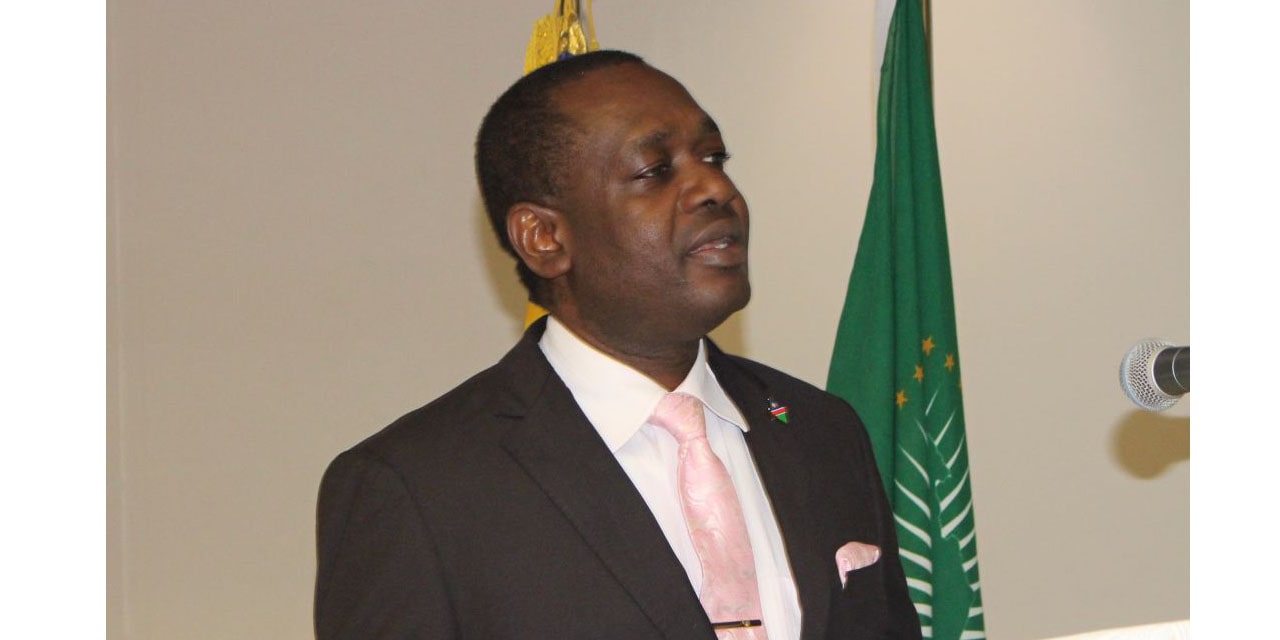Obrein Simasiku/Martin Endjala
The Minister of Information and Communication Technology (MICT) Dr Peya Mushelenga has accused those against mandatory SIM card registration of being criminals, corrupt and engaging in illicit dealings.
“Why are you afraid to register, it seems you are hiding something hence your unwillingness. Its either you are a criminal or you are corrupt, what are you hiding,’’ questioned Mushelenga as he officially launched the Communications Regulatory Authority of Namibia (CRAN) National SIM Registration Consumer Awareness campaign.
The campaign which aims to educate the public on the importance of the registration of SIM cards in Namibia, will run for six months, and as of 1 January 2023, CRAN will go fully fledged into administering the system.
There have been mixed reactions to mandatory SIM card registration with some feeling that their right to privacy will be infringed upon. The minister said that sim card registration will not only benefit consumers but it gives the Government a fighting chance against cybercrimes, and cloning via hacking.
Mushelenga further pointed out that cybercrimes undermine the right to privacy, dignity and deformation. Hence the establishment of a cyber-intelligence division to ensure that Namibians do not fall prey to these crimes.
Needless to say, the minister has assured Namibians that under the Criminal Procedures Act and the Namibia Central Intelligence Act conversation tap-ins are only possible after an alleged offense has been laid, and permission issued by the judge.
Additionally, according to Mushelenga, interception must not be confused. ‘’I stress that unauthorized surveillance is a crime and poses a great threat to individuals and society through the disclosure of confidential information”.
Based on these grounds it will not impede anyone from their freedom of speech and privacy unless when there is sufficient evidence of criminal activities then the protocols will be lawfully applied accordingly.
“Interception is only concerned when dealing purely with criminal allegations and not political, social and economic activities without criminal linkage”, asserted Mushelenga. The minister indicated that the launch of the sim card registration is a form of Namibia moving to a digitalized fourth industrial revolution, while emphasizing the importance of inclusivity of those who have been left out by development activities, will now benefit from the development.
CRAN’s CEO Emillia Nghikembua, assured the public that no voice information of clients will be recorded and stored by service/network providers.
‘’The data to be stored only include the dates of the call, call duration and who the caller and recipient is. The network which our mobile operators are set up does not allow access to voice recording, such requires network operations with level 7. Therefore, we have no capacity to record,’’ she said allaying fears among the public.
She further said that there are frameworks of monitoring compliance, as some of the measures put in place by CRAN. These measures monitor service providers whether they are adhering or not; and any violation has repercussions on the service operator who is the licence holder.
Nghikembua said, as of next year, new system will be in a twofold, one being immediate registration and transitioning which will run for 12 months as grace period to those who have not registered.
“There is no limit as to how many sim cards one should own, for as long as they are all registered we are fine,’’ she reiterated. The CEO urged telecommunication operators to internalize the provided conditions in registering sim cards of consumers as well as de-registering those who wish to stay without a sim card.
157 countries in Africa are part of the sim registration regulatory body and Namibia is the last country to follow.




